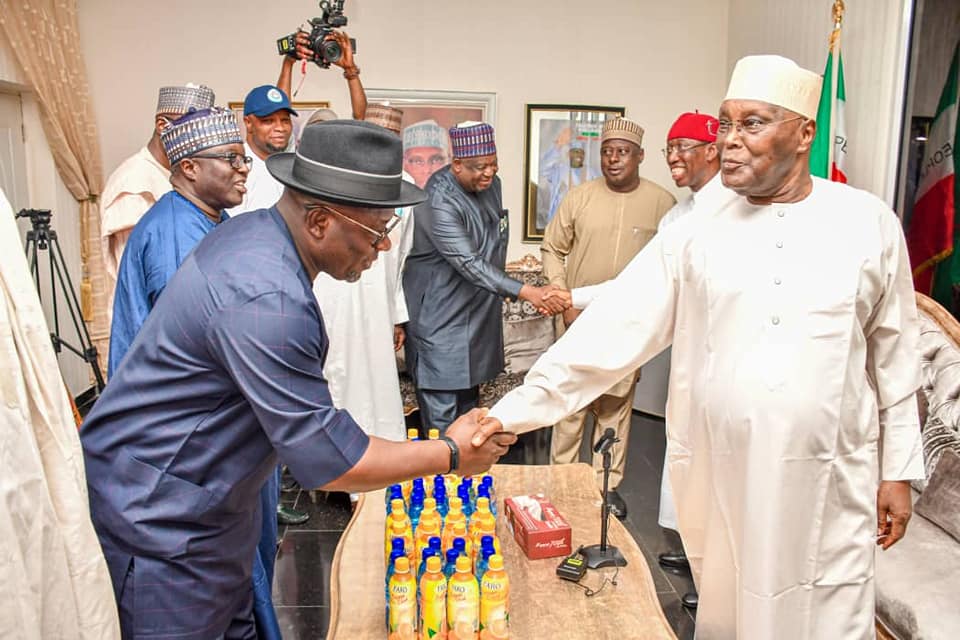
Sambo is a combat sport which is not so well known to many in the country unlike others in its category. Yet it is a sport which holds great potential for Nigerians of different age groups and the country itself, if only efforts and resources would be channeled towards its development. Lagos-born sport administrator, Sheriff Hammed, sees the potential in Sambo and is determined to harness it to benefit athletes and other Nigerians as he revealed in this encounter.
As Chairman, Lagos State Judo Association (LSJA), Sheriff Hammed changed the face of martial sports in Lagos by infusing vibrancy into Judo. This endeared him to the International Association of Combative Sports (IACS) – the only body of combative sports and martial arts education in the world – which then named Hammed as the Joint Secretary (Africa).
Hammed, who will be leading Nigeria’s team to the 13th African Games in Ghana next month, has taken it upon himself to popularise Sambo – across the nation and beyond.
To this end, Hammed revealed: “Our plan for Sambo is to provide an experience that offers a plethora of benefits to the sports industry in Nigeria and participants. From creating a case for improved facilities to improving mental and overall wellbeing, to providing opportunities for recreation and youth engagement, enhancing the education experience of students, brand engagement and more. We want to influence the whole sports value chain in the country by showcasing Sambo as a platform for sport development.”
In pursuing these goals, Hammed is not oblivious to the challenges at hand as he observed: “There is often the misconception that sports is mostly about attending competitions, both locally and abroad, but sports goes beyond this. Every step of development – talent engagement, discovery, development, management and transition – provides a unique opportunity, when considered holistically, to even go beyond developing “sports” as we know it.
“Concerning facilities for instance; there are current facilities that are underutilised. This is due to no particular fault of anyone but international global practices now show us that a sports facility can be multi-purpose and adaptive. Some of the questions we have asked ourselves include this: Do we want to build new facilities for Sambo, or can we work with current sports facilities and work out ways to make the best use of their facilities? While the long-term goal will be to build new facilities, we think by working with current facilities, we can create a win-win situation for such facilities to improve. This is only possible because of the dynamic nature of Sambo, which is very adaptive. Let’s not forget that Sambo is a multidimensional martial art, combining gymnastics, wrestling, boxing, and judo/jiu jitsu. So with the development of Sambo, we are positive this will also influence the development of the sports mentioned above.”
Hammed continued: “Also, with the growing demand for fitness and recreation, we want to offer Sambo as a step into fitness and recreation. Sambo improves the fitness of participants. Offering it as a means to achieve fitness and recreation, puts Sambo in a positive light for participants to get involved in sports. It could become a conduit for people to discover their talents for Sambo and other sports, depending on the capacity of the participants.
“Finally, our approach to engagement and showcasing the benefits of Sambo makes it possible for brands to want to work with us. We are not focused on sports for competition alone. We want to offer many experiences through Sambo.”
Diving deeper into the plans in the works to popularise Sambo in the country, Hammed disclosed: “Our plan is to offer a Sambo experience that responds to our socioeconomic needs as a society – this should be what every sport in Nigeria should be about.
“There are many socio-economic challenges affecting us as a society today and a lot of this stems from the quality of the average Nigerian mind. We have youths that are poorly engaged, leading to an increase in crime. We also have a low level of patriotism, except when we play football, which is a sign of some of the benefits of sports, and then there is the economy of sports we haven’t harnessed well enough.
“For a lot of us, we believe in identifying problems but find it difficult to look up opportunities within these challenges. Our plan for Sambo is to harness the opportunities in our challenges by creating solutions through the sport. By working with stakeholders in sectors such as education, security, transportation and more, we want to offer a sports experience that offers Sambo as a solution, by offering sambo for fitness, recreation and as a sport.
“We know that Sambo develops the mind and body of practitioners, helping them to become well grounded with skills that would continue to improve their lives forever. It also helps to teach important life skills and values, which would benefit the development of the minds of our youths and other participants. What this means is that our plan would be guided by a purpose-driven vision, with the aim of solving some of our socio-economic challenges in Nigeria. We do not want to offer a one-size-fits-all experience. We want to adapt and work based on identified needs and challenges we would be engaging.
“We believe our current sports need, as a society, is to ensure we can showcase the benefits of sports beyond just competing. Unfortunately, this is the mindset most of us have including our athletes and coaches. This shouldn’t be the case as it means it would be impossible to develop our sports sector due to challenges like poor facilities and more. But our approach, which stems from a “sports-for-good” concept, evaluates our current needs as a society, and then looks for ways to engage people. By increasing access to the sport, offering it as a means to achieve fitness and recreation, we increase the opportunities to identify talents for the sporting angle of Sambo.
“Our key focus at the early stages is to look at those who would like to try it out for fun and this would help people of all ages. This would be in the form of workshops, demonstrations and activations, which would showcase the benefits of the sport.
“We are also working on building the capacity of our coaches at the moment because without them, it would be impossible to offer Sambo to anyone. We are making sure our coaches are exposed to international best practices in coaching, safeguarding and more.”
Further to the plans to popularise Sambo, Hammed added: “Our engagement plan focuses on collaborations and by this we are looking at opportunities to create awareness for the sport in Nigeria. We have set out a strategy that focuses on offering seminars, workshops, activations, and demonstrations carried out with specific partnerships at different locations where we want to engage people. Key to our plans is to host a series of competitions, with participants from within Nigeria and Africa.”



